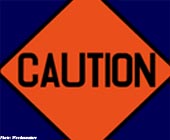 The purpose of the stock market is to provide liquidity to investors who know with certainty that they can buy and sell their shares at any time. In this way, the market serves as a constant encouragement to invest capital in sectors of the economy while limiting risks. Thus, the market fulfills a need in society and can contribute to economic prosperity.
The purpose of the stock market is to provide liquidity to investors who know with certainty that they can buy and sell their shares at any time. In this way, the market serves as a constant encouragement to invest capital in sectors of the economy while limiting risks. Thus, the market fulfills a need in society and can contribute to economic prosperity.
However, it is no secret that the stock market has often favored reckless activities and speculation that depart from this purpose. It has given rise to crashes, manias and panics that turns this instrument of sound investment into a financial casino where everyone plays the market in hopes of cashing in at the right moment. Stockbrokers are always coming up with new ways to beat the market. Such practices are perfect examples of what has been called frenetic intemperance – a reckless and restless spirit inside modern economy that seeks to throw off all restraint.







